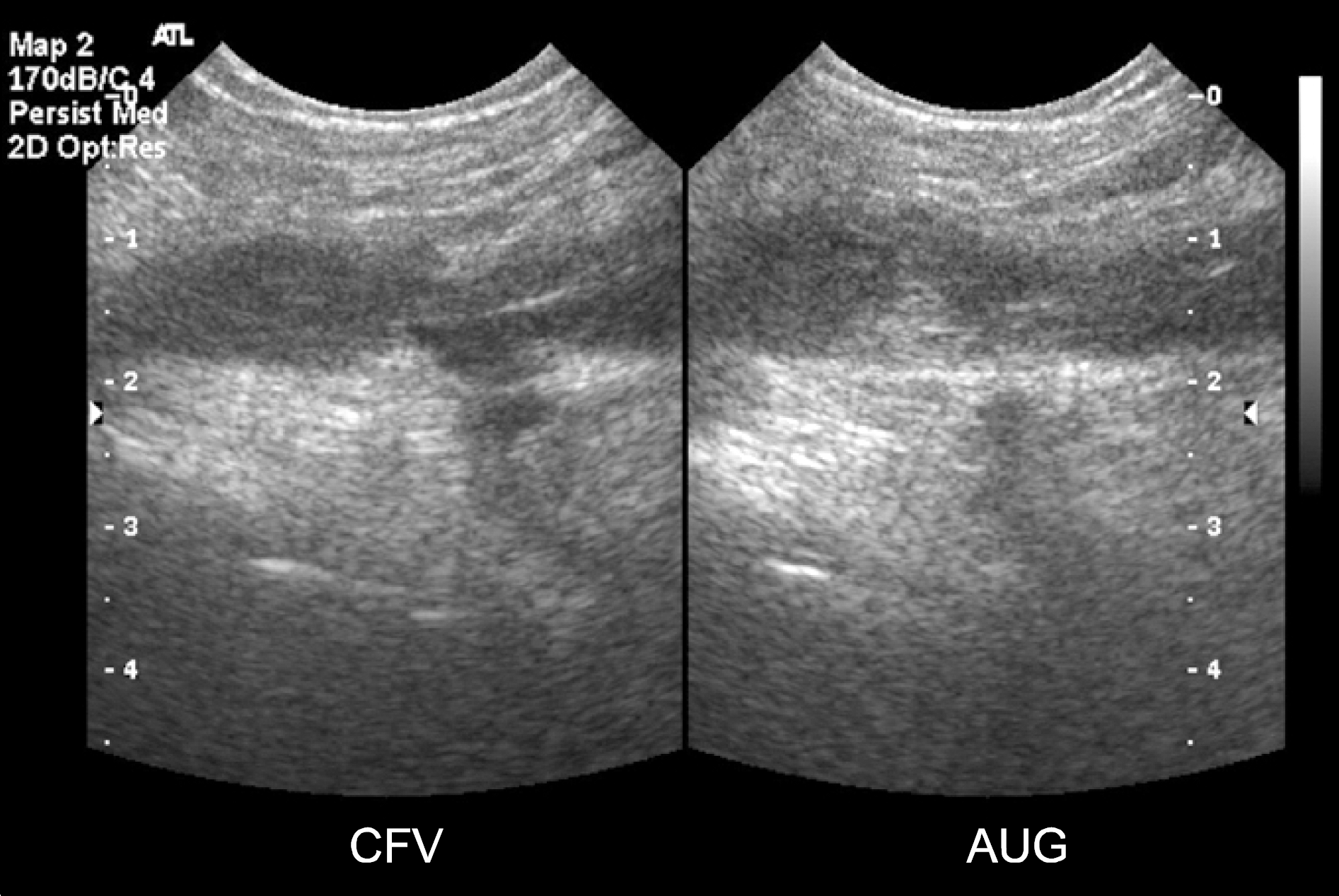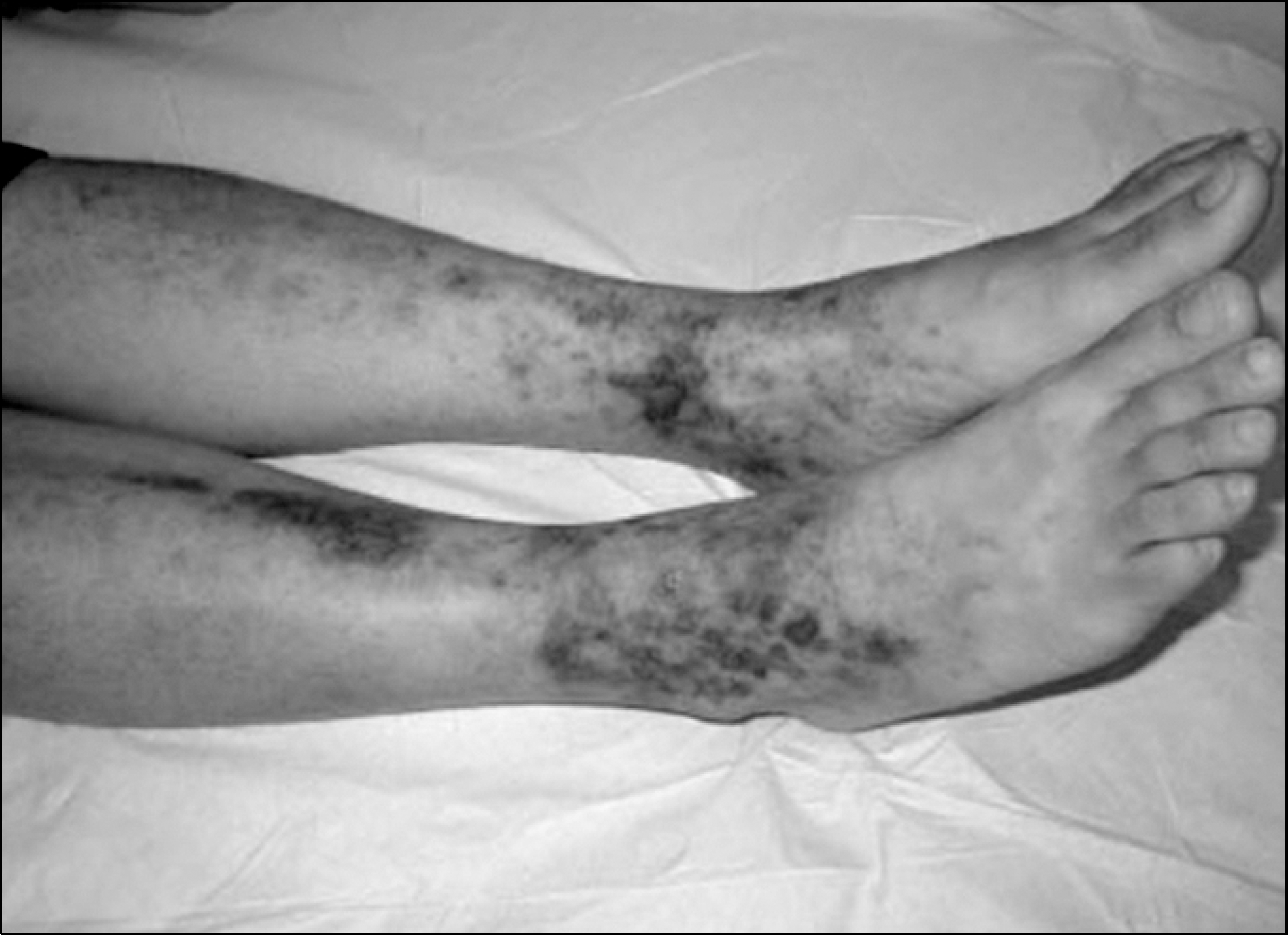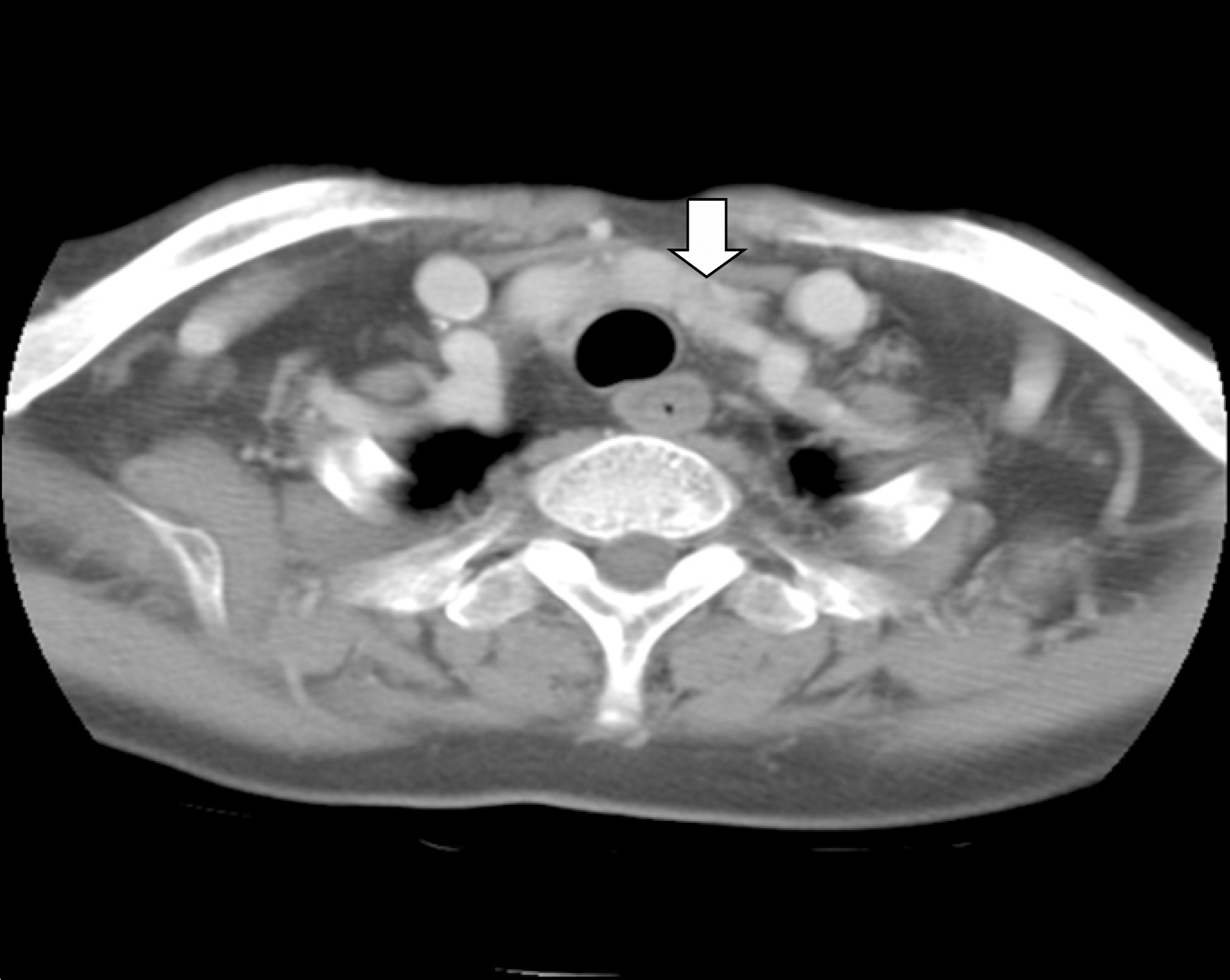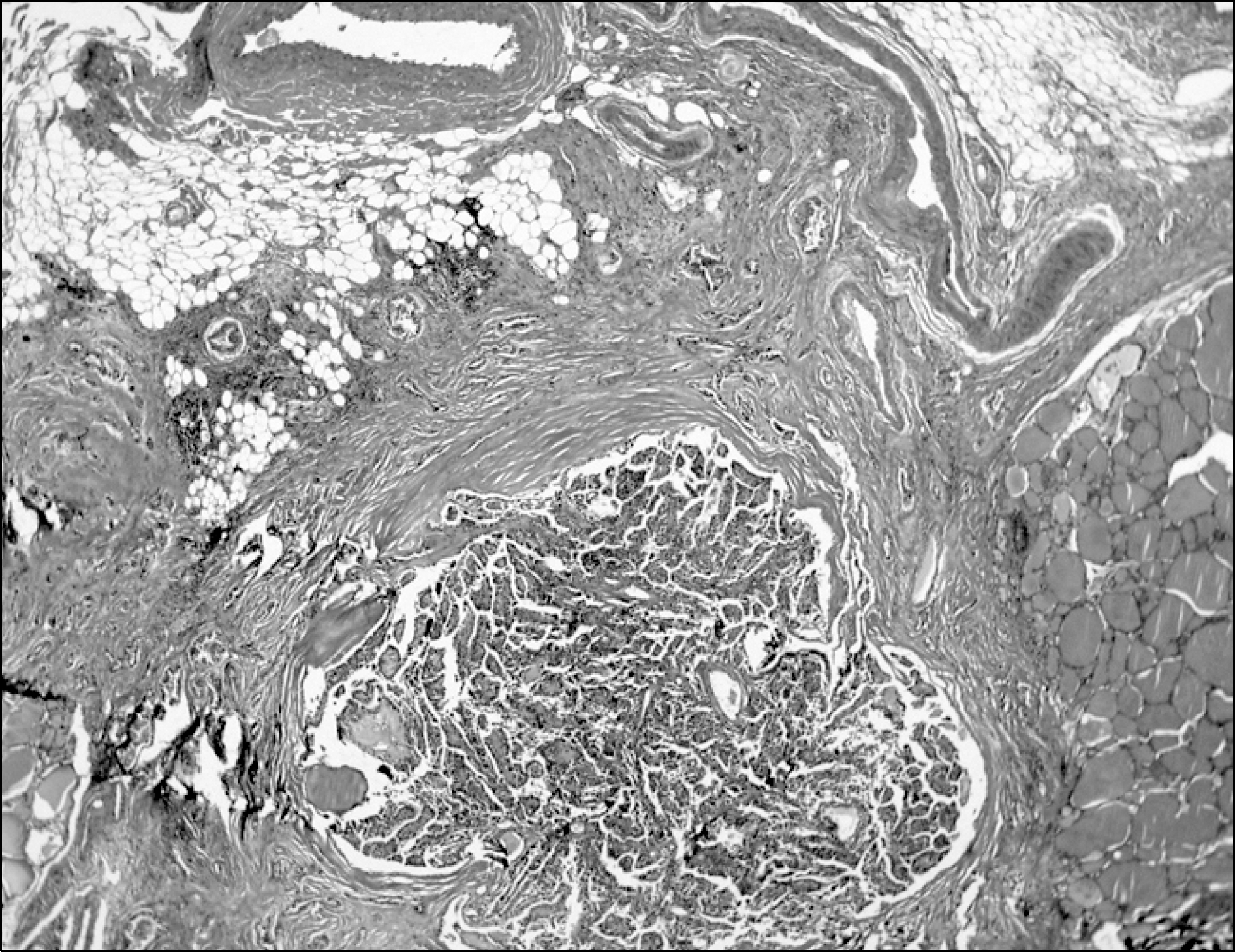Abstract
Antiphospholipid antibody syndrome (APS) is defined as the presence of lupus anticoagulant antibody or anticardiolipin antibody with vascular thrombosis or pregnancy complications. APS can be associated with autoimmune disease or infectious disease. APS has also been reported in con-junction with variety of solid and hematologic malignancies. There were some reports on APS which were accompanied by hematologic malignancy, but there was no report with solid malignancy in Korea. We experienced one case of secondary APS, which was diagnosed during pre-operative evaluation of thyroid cancer. This patient had prolonged aPTT (activate partial thromboplastin time) and decreased coagulation factors which were regarded as hemophilia at first. Although the precise mechanism of the relationship between APS and cancer has not been proven thoroughly, APS can be accompanied by various malignancies. So proper screening and early detection of malignancies in APS patients are recommended.
References
1. Pham C, Shen YM. Antiphospholipid antibodies and malignancy. Hematol Oncol Clin North Am. 2008; 22:121–30.
2. Ciaudo M, Horellou MH, Audouin J, De Carbonnieres C, Conard J, Samama M. Lupus anticoagulant associated with primary malignant lymphoplasmacytic lymphoma of the spleen: a report of four patients. Am J Hematol. 1991; 38:271–6.
3. Samadian S, Estcourt L. Recurrent thrombo-embolic epi-sodes: the association of cholangiocarcinoma with antiphospholipid syndrome. Postgrad Med J. 1999; 75:45–6.
4. Stasi R, Stipa E, Masi M, Oliva F, Sciarra A, Perrotti A, et al. Antiphospholipid antibodies: prevalence, clinical significance and correlation to cytokine levels in acute mye-loid leukemia and non-Hodgkin's lymphoma. Thromb Hae-most. 1993; 70:568–72.
5. Tincani A, Taraborelli M, Cattaneo R. Antiphospholipid antibodies and malignancies. Autoimmun Rev. 2010; 9:200–2.
6. Yamamoto T, Ito M, Nagata S, Suzuki H, Togawa A, Nagase M, et al. Catastrophic exacerbation of antiphospholipid syndrome after lung adenocarcinoma biopsy. J Rheumatol. 2000; 27:2035–7.
7. Levine JS, Branch DW, Rauch J. The antiphospholipid syndrome. N Engl J Med. 2002; 346:752–63.
8. Jude B, Goudemand J, Dolle I, Caron C, Watel A, Tiry C, et al. Lupus anticoagulant: a clinical and laboratory study of 100 cases. Clin Lab Haematol. 1988; 10:41–51.
9. Finazzi G. The Italian registry of antiphospholipid antibodies Haematologica. 1997; 82:101–5.
10. Reinstein E, Shoenfeld Y. Antiphospholipid syndrome and cancer. Clin Rev Allergy immunol. 2007; 32:184–7.
11. Rand JH, Wu XX, Andree HA, Lockwood CJ, Guller S, Scher J, et al. Pregnancy loss in the antiphospholipid-antibody syndrome–a possible thrombogenic mechanism. N Engl J Med. 1997; 337:154–60.
12. Lee WC, Lee SB, Kim YM, Hong JH, Seong EY, Park SM, et al. Clinical significance of antiphospholipid syndrome. Korean J Med. 1998; 55:325–33.
13. Lockshin MD, Erkan D. Treatment of the antiphospholipid syndrome. N Engl J Med. 2003; 349:1177–9.
14. Nabriski D, Ellis M, Ness-Abramof R, Shapiro M, Shenk-man L. Autoimmune Thyroid Disease and Antiphospholipid Antibodies. American Journal of Hematology. 2000; 64:73–5.
15. Jose A, Gomez P, Ricard C, Gerard E, Sira A, Silvia B, et al. Antiphospholipid antibodies associated with malignancies: clinical and pathological characteristics of 120 patients. Semin Arthritis Rheum. 2006; 35:322–32.




 PDF
PDF ePub
ePub Citation
Citation Print
Print






 XML Download
XML Download